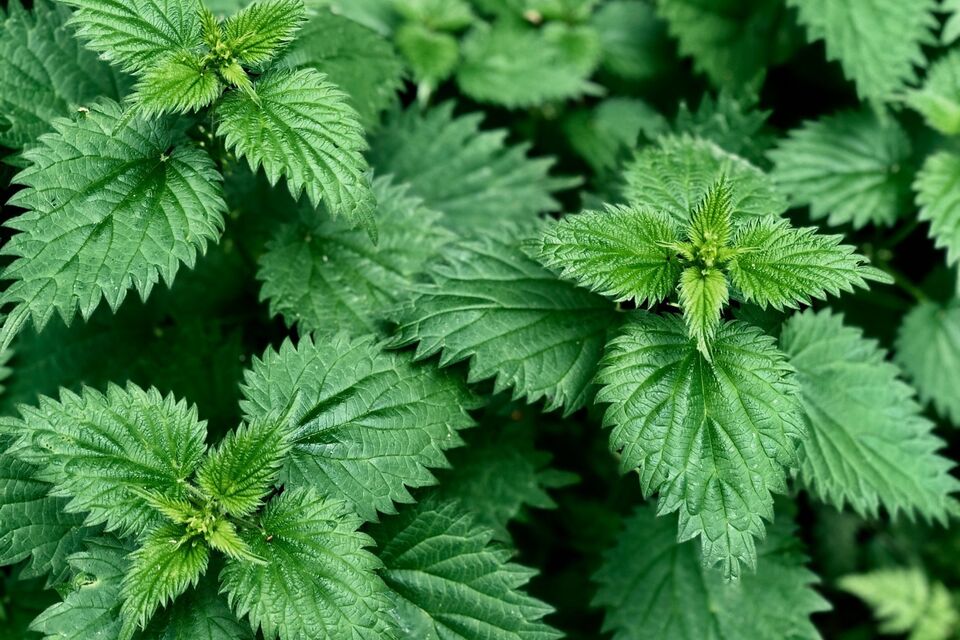Ah January, season of new beginnings and all good intentions. As we count the cost of Christmas and the impact it had on our wallets, our waistlines and the planet, you can’t help but be swept into all the hype about how we can make a difference this year...
This year, Veganuary is even more in the spotlight (for the uninitiated this is where you give up all animal-based products for the entire month of January) and is apparently going mainstream with more than 250,000 people in 193 countries pledging to move to a plant-based diet for the 31-day period. The reasons behind this can be health-based, as there is a strong body of evidence to suggest that veganism is good for your health. For others the rationale may also be based on reducing our impact on the planet, given that raising meat for human consumption is said to have a significant impact on climate change, accounting for 14.5% of human-generated greenhouse gas emissions.
But this is not the only way in which you can do your bit, as we’ve been finding out. Here at The Forge, these are themes all near and dear to our heart, our ethos being founded on promoting sustainable experiences, minimising our impact on our environment whilst also helping others to learn how to do the same. Last year Family Forge dabbled with a vegan diet from time to time, partially as a pre-end-of-year health kick, but also to see if we should be practising what we preach in terms of our eco-credentials. But we’ve also been weighing up whether trying to eat more local can be as beneficial. This is what we found…
Food miles and plastic packaging
As I filled my fridge with tofu, miso and coconut milk, I was suddenly struck by how much plastic there was in my fridge, compared to the usual battered Tupperware pots full of different cuts of meat. I also started to cast an eye over the ingredients list and it was long, in some cases very long. And all from far flung places such as Malaysia, the Philippines and Thailand. While my egg basket was overflowing with eggs we weren’t eating and our freezer full of home-produced and wild meat lay untouched, here I was flying in ingredients from all over the world with not a clue as to their real provenance. Now before I go any further, I know that everyone has the luxury of their own hens or pigs or lambs, so I am IN NO WAY suggesting that people shouldn’t follow a vegan diet – each to their own. But a little sense check now and again as to whether your vegan choice is really offsetting the carbon footprint of purchasing local products could go a long way. It was when I heard that it took 1.1 gallons of water to produce just ONE almond, in parts of the world already ravaged by drought, that I decided to start getting my milk from my friend’s cows down the road, Dallas, Alexis and Miss Perky, unpasteurised, completely natural and in beautiful old-fashioned glass bottles.
Freshness of the food
We eat a lot of veg here at The Forge. In fact, a lot of the time we eat vegan without really thinking about it. Lots of veggie stews and pasta sauces and roast veg. But when we were eating only veg we had to supplement from the shops and supermarkets. This meant we were eating crops out of kilter with the season as we were able to order in things like courgettes and aubergines, ingredients we have not had at home since the summer. I also learned that to offer these summer veggies all year round sometimes the veg can have been stored for several months before being sold as ‘fresh’ in the aisles. Not only does this mean that a lot of the nutrients have been lost, it also doesn’t taste as good as veg you’ve picked half an hour before you’ve eaten it. For us, ensuring our veg sees us through the winter means we eat it alongside our own meat and eggs – this way it goes a lot further.
Cost
Not only does it not taste as good but buying in all the plant-based products worked out to be really expensive for us. Although we didn’t find it hard to find vegan alternatives for most things, I really noticed the difference in our weekly shopping costs. We also found that we were spending more at the major supermarkets or online, rather than using our local shops which tended not to have the same vegan range. This sadly meant that money was leaving our local economy and not benefiting our local farmers and producers.
Social Eating Habits
Mealtimes are a Big Deal here at The Forge. We love to get whoever is around to join us round our large battered farmhouse kitchen table for big communal meals. We’re also renowned for roping in everyone to help us with the preparation – this could range from actually butchering the meat to picking the veg or popping up to the hen house to sneak an egg or two from under an unsuspecting chicken. Our kids are always really involved in the food prep yet somehow, despite growing up in a household of self-sufficient wannabes, still seem to harbour the same mistrust for vegetables that are not on their favourites list. They also LOVE meat and cheese, like it is going out of fashion. This made a fully vegan diet a bit of a pain in the arse as we were preparing different meals for different people. I also became conscious that I didn’t want there to be any kind of division or tension over what can and can’t be eaten in our house. They are likely going to be subjected to enough eating-related nonsense through social media and the general course of their lives, that having a relaxed, social environment around the table at home where food just happens to be consumed in the midst of great laughter and storytelling is the most important thing for me.
Homemade custard
Despite all of the above, I was still considering eating vegan again in 2019. There is something very ‘clean’ and controlled about a plant-based diet which really appealed to me and I did feel great. But then over Christmas, we discovered how to make our own custard, with our own eggs and the fresh, unpasteurised, straight-from-the-cow-thick cream from our bovine buddies down the road. And Oh My. Virtually zero food miles, bright yellow and worlds apart from the powdered crap you might have endured as part of your school dinners. Eating it is like a food epiphany, a culinary spiritual experience like no other! I don’t say this to be flip, but more because this custard-making experience sums up how we feel about food in general. January, life on a farm in rural North Wales, two small kids, a business, a job, a veg patch in constant need of attention – life is hard and short enough without adding more complications and restrictions and rules. I completely understand that vegan food can taste amazing (I know because I’ve enjoyed it myself) but for us, the joy of growing and producing and really enjoying our own food, or sourcing the food locally knowing exactly where it has come from, is what puts big smiles on our faces. We are foodies with a passion for Localism, and ultimately this will win out for us over Veganism. Well, for this year at least.
Doing our best
But even committing to eat as locally possible is no easy feat. As we considered how we could minimise our impact on the planet through our food choices we came to realise that when you really start to look into it you can tie yourselves in knots with what constitutes ‘good’ and ‘bad’. OK, so we eat our own eggs and our own chickens, but where did their food come from? (spoiler: in plastic sacks and full of soya oil ☹) We buy our fruit at the local greengrocers but where do they source it from? What about all the additional condiments and staples in the larder, not to mention the crockery and cutlery and the pans and gas we used to cook everything – how much energy was expended in getting them into our kitchen? And everywhere we look there is plastic, plastic, plastic… cleaning products, wellies, freezer bags, the list goes on. So, eating vegan, eating local, cutting down on plastic – short of returning to a full-on hunter-gatherer lifestyle there are limits to how sustainable we can all realistically be. But that shouldn’t stop us from doing our bit. Thousands of micro-actions can make a big impact, as well as setting a good example for our future generations. So here, for 2019 are our best intentions to do our own little bit:
- Use what we’ve got: Empty our freezers and get inventive with all the odd cuts of meat and frozen fruit and veg that we have been stockpiling and had sort of forgotten about.
- Waste not, want not: Get another pig to eat all our food scraps, switch the hens’ diet to our leftovers and compost anything left over after that. Then eat the very happy pig.
- Grow veg more strategically: Focus more on the crowd-pleasers that we all enjoy and think about how we have enough to see us through the whole year, not just the summer season gluts. Also think about what is best to eat nutritionally, will fill us up and keeps well: beans, peas, potatoes - you get the idea.
- Eat more wild food: It’s everywhere, it’s free, it’s completely local and it’s good for you. There is really no excuse for not eating more. Nettles, for example, are a superfood that pack a punch, containing very high levels of vitamin C and iron and tastes amazing.
- Barter - as we become more established here in North Wales the more we are finding people who share our passion for growing. foraging or hunting their own. We've already started trading wild trout for wild rabbits, sprouts for eggs and venison for lamb.
- Change our buying and eating habits - we've started to wean ourselves off avocados and bananas given the food miles involved and when we do have to buy in from the shops we're consciously looking out for the Welsh or UK flag to signify it's local (ish). We also love the BBC's food carbon calculator to keep us right on this.
- Connect with local producers: We started to buy in bulk from some fantastic local food and drink companies last year for our welcome hampers and we intend to do this on an even bigger scale this year. With the looming shadow of Brexit hanging over all of us, there feels like no better time to support each other and keep it local.
- Live and let live: But most of all we plan to be open and accepting to everyone’s choices. This is just the Forge Family’s best intentions and they probably wouldn’t work for everyone. We’d just encourage people to be mindful of their food choices, take a moment to consider the bigger picture and at the end of the day, just do your best.

